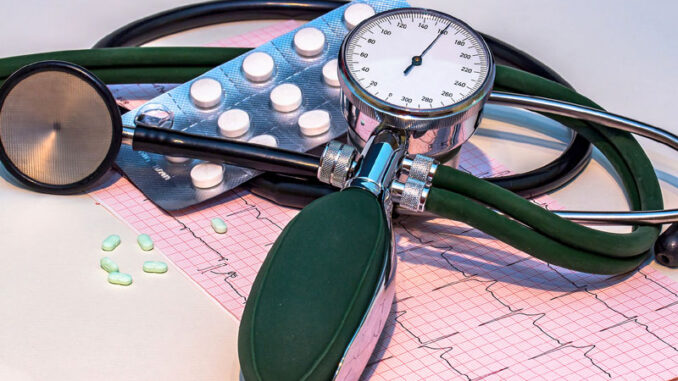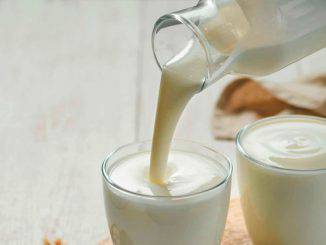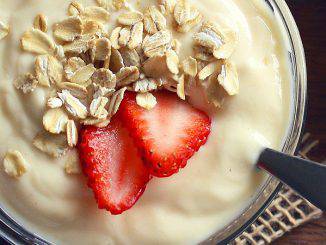
High blood pressure (Hypertension) is increasingly becoming a worldwide health problem. Researchers found that more than one billion people worldwide have high blood pressure, and nearly five million deaths every year are reported to be a direct result of hypertension.
Many people live for years without realizing they constantly have high blood pressure, leading to severe health conditions. Continuously untreated high blood pressure may cause many heart diseases, including ischemic disease and heart failure, but also kidneys deterioration, visual impairments, diabetes, brain strokes, etc.
According to the World Health Organization, seven out of ten people with hypertension are either not treated at all or not treated adequately.
What is blood pressure, and what is considered “normal” blood pressure?
Simply put, blood pressure relates to the stress our heart exerts in our cardiovascular system – mainly in our arteries. Blood pressure depends on the amount of blood our heart pumps and the resistance blood flow experiences in our arteries. This pressure is measured in millimeters of mercury (mmHg) and is represented by two numbers: systolic blood pressure (SBP) and diastolic blood pressure (DBP).
The systolic blood pressure reflects the blood flow pressure when the heart is contracted (also called systole), while the diastolic blood pressure reflects the pressure when the heart is relaxed (also called diastole). In other words, systolic pressure is the pressure in the arteries at the moment of the heartbeats, and diastolic pressure is the pressure in the arteries between the heartbeats.
That is why the blood pressure is always represented by two numbers such as, for example, “120/80”. The higher number represents the systolic blood pressure, while the lower number represents the diastolic blood pressure.
Many sources suggest that blood pressure considered “normal” should be under 120/80 mmHg. However, things are slightly more complex. In reality, blood pressures perceived as normal may vary with age and sex.
You can find in the table below the blood pressure ranges considered “normal”, depending on age and sex.
| Age | Systolic | Diastolic | |
| Male | |||
| 21-25 | 120 | 78 | |
| 26-30 | 119 | 76 | |
| 31-35 | 114 | 75 | |
| 36-40 | 120 | 75 | |
| 41-45 | 115 | 78 | |
| 46-50 | 119 | 80 | |
| 51-55 | 125 | 80 | |
| 56-60 | 129 | 79 | |
| 61-65 | 143 | 76 | |
| Female | |||
| 21-25 | 115 | 70 | |
| 26-30 | 113 | 71 | |
| 31-35 | 110 | 72 | |
| 36-40 | 112 | 74 | |
| 41-45 | 116 | 73 | |
| 46-50 | 124 | 78 | |
| 51-55 | 122 | 74 | |
| 56-60 | 132 | 78 | |
| 61-65 | 130 | 77 |
Nevertheless, despite the age and sex-related tolerances, the World Health Organization considers a blood pressure of 120/80 mmHg as optimal. Any significant deviation from these values should be addressed with care, and a consultation with a medical specialist is recommended. Moreover, systolic blood pressure higher than 180 is considered a hypertension crisis that may require immediate medical help
What causes high blood pressure, and how is it treated?
A wide variety of factors may cause high blood pressure, including family (genetic) predisposition, but the most widespread are lifestyle-related risk factors such as:
- Stress
- Obesity
- Low physical activity
- Tobacco abuse
- Alcohol abuse
- Inadequate diet including too much salt and fats
The treatment of high blood pressure (hypertension) usually correlates to lifestyle changes like decreasing stress levels, losing weight, increasing physical activity, quitting smoking, and reducing the amounts of alcohol and, more importantly, salt in the everyday diet.
Additionally, doctors may prescribe drugs such as vasodilators, diuretics, ACE inhibitors, and beta-blockers that should be taken in the long run to keep the blood pressure in acceptable ranges.
The role of probiotics, and Kefir in particular
The health benefits of probiotics have drawn increased attention in recent decades. Probiotics are already well studied for their health benefits in improving the overall immune system functioning, preventing chronic inflammations, and decreasing total cholesterol and blood sugar levels. And as we said, chronic inflammations, obesity (due to increased cholesterol), and diabetes are among the principal risk factors for high blood pressure.
Moreover, the most potent probiotic product – milk Kefir – contains Tryptophan – an essential amino acid used by our bodies to generate melatonin and serotonin that help regulate our sleep-wake cycle and mood. As a result, Tryptophan decreases stress levels in our nervous system, and stress is also known to be the leading risk factor for hypertension.
Scientific research on the effect of probiotics on blood pressure published in April 2020 revealed that probiotics demonstrate real potential for the dietary treatment of hypertension.
The study found a moderate but statistically significant reduction for either SBP (Systolic blood pressure) or DBP (Diastolic blood pressure) with probiotics supplement compared to the control group where probiotics were not applied. The study involving 2037 participants proved that consumption of probiotics decreased systolic blood pressure by an average of 3.05 mmHg and diastolic blood pressure by an average of 1.51 mmHg.
Another exciting research conducted by the Harvard Medical School published in 2014 and involving 543 participants with high blood pressure found that participants who consumed foods with larger concentrations of probiotic bacteria saw a more significant decrease in blood pressure.
The study appears to unambiguously prove the direct relationship between the concentration of probiotic bacteria and the decline in blood pressure levels. The target group of people who consumed probiotics had an average reduction in systolic blood pressure of about 3.6 mmHg and an average drop in diastolic blood pressure of about 2.4 mmHg, compared to the group that did not take any probiotics.
This study also found that the beneficial results of probiotics on lowering blood pressure needed more extended periods of intake. It took to participants eight weeks or longer for the benefits to show up.
The actual mechanisms behind these positive results are not yet entirely clarified, and most scientists confirm that further research is needed before doctors can advise patients to take probiotics to fight their high blood pressure. However, most of them find possible explanations for these positive effects in the ability of dairy probiotics (and Kefir in particular) to lower cholesterol, triglycerides, and blood sugar levels.
The study also found a possible explanation in the fact that dairy products with probiotics may also contain substances similar to the ACE inhibitor medicines used to control blood pressure.
Another probable reason behind the positive effects of Kefir in lowering blood pressure may be its well-documented effect on balancing and harmonizing the gut microbiota and the so-called gut-brain axis.
As a bidirectional communication between the central nervous system and the guts microbiome, the gut-brain axis is known to directly link our intestinal functions to our brain’s emotional and cognitive capacities. As a result, a well-balanced intestinal microbiome will inevitably lead to positive effects on stress levels, thus contributing to blood pressure reduction.
Finally, it is worth mentioning again that reducing the amount of salt in our everyday diet may have the most significant effect on lowering our blood pressure.
The reason is that reduction of salt intake has a double effect. On the one hand, the abuse of salt is among the main risk factors for hypertension. However, on the other hand, the excessive presence of salt in our guts will also inhibit the potentially positive effects probiotics may have in controlling our blood pressure.
Summary
High blood pressure is a worldwide health problem, affecting more than one billion people throughout the globe and causing nearly five million deaths per year.
If left untreated, high blood pressure may cause many severe cardiovascular diseases. According to the World Health Organization, seven out of ten people with hypertension are either not treated at all or not treated adequately.
The World Health Organization suggests that blood pressure considered “normal” should be under 120/80 mmHg, but in reality, normal blood pressures may vary with age and sex.
The main risk factors leading to hypertension are lifestyle-related, including obesity, low physical activity, tobacco and alcohol abuse, or a diet with too much salt and fats.
Several scientific studies suggest that probiotics, including Kefir, have a real potential for the dietary treatment of hypertension.
Probiotics are known for their ability to improve the overall immune system functioning, prevent chronic inflammations, decrease cholesterol and blood sugar levels, and all these conditions are among the principal risk factors for high blood pressure. Studies unambiguously proved the direct relationship between the concentration of probiotic bacteria in the gut and the decline in blood pressure levels.
While the actual mechanisms behind these positive effects may not be fully clarified yet, possible explanations may be found in the ability of dairy probiotics to lower cholesterol, triglycerides, and blood sugar levels.
Moreover, the bidirectional communication between the central nervous system and the guts (also called the “gut-brain axis”) is known to directly link our guts functions to our emotional and cognitive capacities. As a result, a steady and harmonious gut microbiome will inevitably decrease stress levels and contribute to blood pressure reduction.
Related questions
- What are the signs of high blood pressure? Indeed, many people live with high blood pressure without even realizing they have hypertension. Therefore, it is important to clearly define the symptoms that may signal you have high blood pressure. These symptoms may include headaches (especially in the back of the head), nosebleeds, confusion, blurred vision, difficulty breathing, irregular heartbeat.
- What blood pressure is considered dangerous? While any significant deviation from the values of 120/80 mmHg (deemed optimal by the WHO) should be addressed with care, systolic blood pressure higher than 180 is regarded as a hypertension crisis and requires immediate medical attention.
Related resources
- What is Kefir?
- Kefir benefits
- What are probiotics?
- What are microbiome and microbiota?
- Can Kefir help acid reflux?
- Kefir and IBS
- Can Kefir help SIBO treatment?
- Can Kefir make me sick?
- Can Kefir help with antibiotics?
- Kefir and Diabetes
- Is Kefir good for elderly people?
- Can Kefir help with weight loss?



